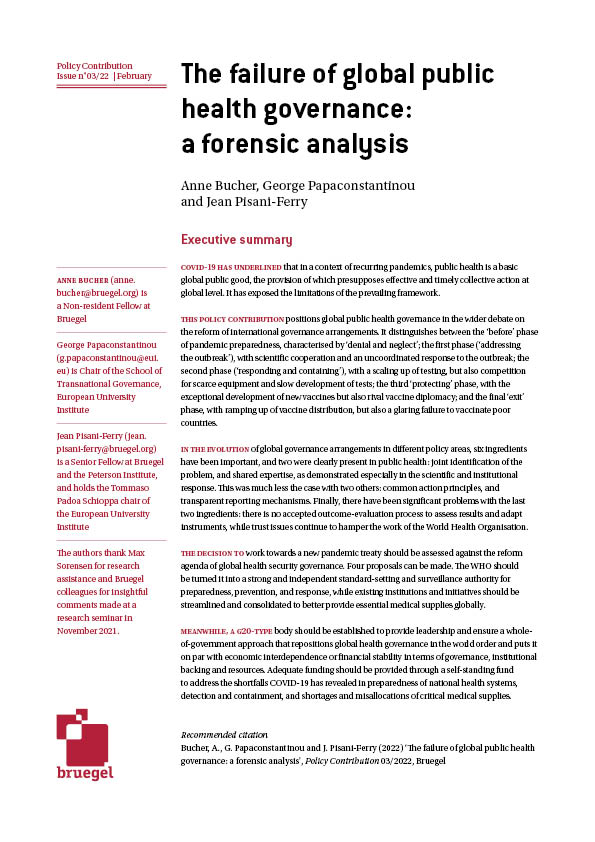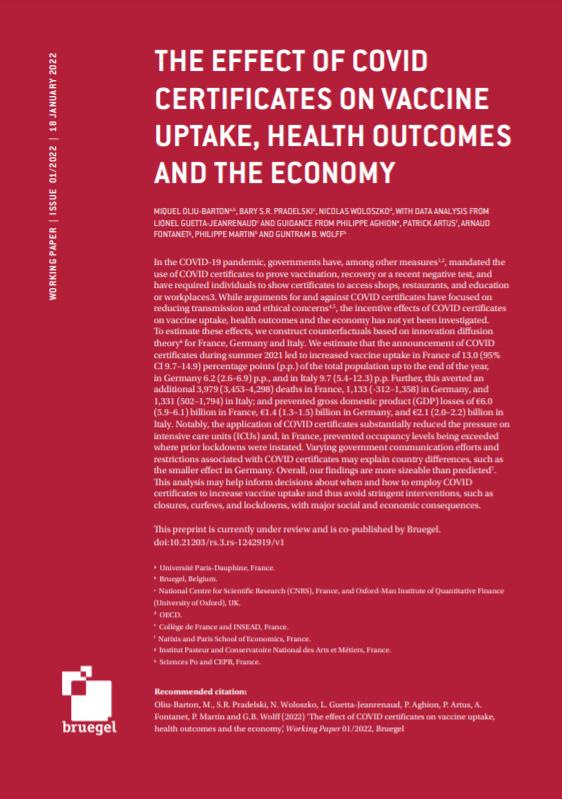Blog Post
Happy New Year?
A recovery from the COVID-19 recession is underway though the suffering is far from over, especially for the most vulnerable. Inequality is both a consequence of the pandemic and a cause of its severity. Many countries need comprehensive policy change to address its worst effects.
At the end of a tragic year marked by pandemic and increased poverty, the miraculously rapid arrival of vaccines stirs great hope. The COVID-19 recession will be remembered as one of unprecedented severity but also, with some luck, as one that was short-lived across many parts of the world. It looks like 2021 will be a much better year for the economy and will also mark the turning point, though not the end, of the health crisis. The crisis has accelerated technologies, such as genetic engineering, and methods, such as remote provision of services, that hold enormous promise. But it has also raised fundamental questions about the sustainability of social models based on extreme inequality.
The world economy suffered a massive supply and demand shock from the pandemic, which hit hardest in the second quarter of the year, when GDP in the G20 group of countries was 9% lower than the same quarter of 2019. The subsequent recovery occurred faster and sooner than most had anticipated. Despite a second wave of the pandemic since September, it appears likely that world GDP will be ‘only’ about 3% lower at the end of the year than at its start, though also carrying considerable forward momentum. The 16 December Fed forecast projects 4.2% United States growth in 2021, implying a return to end 2019 GDP by the end of 2021. China will be the only major economy to grow in 2020 and will see GDP advance at rates well above its 5% to 6% trend in 2021. The recovery in Europe will be somewhat slower and from a worse spot. The appearance of a new strain of the virus is concerning, but, with the arrival of vaccines, the economic recovery appears likely to exceed the expectations of just a few months ago.
The stabilisation of economic activity and the subsequent recovery could not have occurred without massive fiscal and monetary loosening which dwarfed even the major efforts in the wake of the 2008 financial collapse. Passage on 21 December of another set of fiscal support measures by the US Congress, amounting to over 4% of GDP, is especially good news.
The recovery was also crucially enabled by a return to work as lockdown measures have become more selective, targeted and time-bound. Firms have adjusted to operating under pandemic conditions, individuals apply social distancing, and medical care and capacity has improved. Fear of the virus, which was and continues to be a major factor affecting consumer and investor confidence, has abated somewhat as knowledge has improved of its infectiousness, incidence and lethality.
The global demand and supply acceleration that began at the end of the second quarter was reflected in a sharp recovery of world trade. Manufactures, where the cycle was deepest and shortest, weigh more heavily in international trade than services. Yet, unlike any other previous episode, some services, including transport, tourism, recreation and retailing, were not only the worst hit by the recession but also will take far longer to recover.
One of the greatest fears, a rampant series of financial and balance-of-payments crises in emerging markets (EMs), has not materialised. Large pre-emptive support measures by the International Monetary Fund and by central banks helped shore up confidence. Most importantly, markets realised that a rapid global trade recovery would combine with low international interest rates to enable even the more indebted EMs to manage. The resilience of non-oil commodity prices (partly reflecting Chinese demand) and a lower US dollar helped many EMs to cope. The collapse in oil prices helped oil importers. Though oil exporters are faring badly, most can compress spending from high levels and have resources to fall back on in the form of reserves or the ability to borrow against future revenues.
The most obvious economic legacy of the COVID-19 recession will be higher government debt levels, though debt will remain manageable while real interest rates remain low, which is widely expected – indeed promised by central bankers – over the next few years.
Another worry is that the recession will give way to even lower long-term productivity growth because of its effect on investment in human and physical capital and because of tightening of financial constraints on the most vulnerable firms and individuals. Certainly, concern about children missing school is justified. However, the evidence so far is that – helped by liquidity injections – gross fixed capital formation remains near pre-crisis levels, bankruptcies have increased but remained within tolerable bounds, and banks remain adequately capitalised.
For better or worse, the firms that are most affected by the recession tend to be smaller and least connected to the banking system and to stock markets. Stock markets are near record levels in part for that reason, helping support demand at the high end of the consumption spectrum. In contrast, while relief measures help many smaller and medium-sized firms survive, eventually government support will be withdrawn, forcing the weakest to succumb to new post-crisis business models.
The probable future restructuring in sectors including travel, commuting services, retailing, recreation and commercial real estate, will be painful but is likely to be a source of increased, not reduced productivity. Remote service provision made possible by ICT, such as e-commerce and distance learning and work, is not new but its take-up has been greatly accelerated by the crisis. These methods imply a reorganisation of work which can reduce costs and waste, not to mention carbon emissions. Genetic engineering innovation – now evident in vaccines – appears to herald not only a medical revolution, but also much wider productivity-enhancing applications in other fields, such as agriculture to materials.
The biggest challenge facing the post-pandemic world is not likely, in my view, to be a decline in efficiency or even a debt overhang. Instead, the big question will be how to deal with the uneven effect of the disease and its economic fallout on society’s most vulnerable – the less educated, those in the informal sector, minorities – and how to avoid a repeat of the dismal experience of 2020.
High inequality is not only a consequence of the pandemic but has been a major cause of its severity. The virus thrives in places where people need to work or live close to each other, where good care is scarce, and other morbidities are widespread. For example, Latin America has the world’s highest income inequality, and is also the continent where the economic fallout from COVID-19 is most severe and the health crisis is direst. The United States is the world’s richest nation by most measures, but also one where the COVID-19 fatality rate and inequality – especially access to healthcare – is among the highest. Black and Latino minorities in the US suffer from death rates far higher than those among whites. For all the criticism of the Chinese system and of China – itself an unequal society – it is impossible to ignore its success at containing the disease and limiting its economic fallout on the population at large.
Innovative, specific and targeted, relief measures by treasuries and central banks around the world helped mitigate the disaster that affected the most-exposed firms and vulnerable groups. They have added to the arsenal of weapons that can be deployed against future health and financial crises. But the suffering from COVID-19 is far from over, and anyway for inequality, the measures taken are palliatives not durable remedies. In many countries, dealing with inequality will require a comprehensive overhaul of growth and social policies. Unfortunately, as the year turns, neither the political will, nor the economic capacity, to undertake such endeavours is evident.
Recommended citation:
Dadush, U. (2020) ‘Happy New Year?’ Bruegel Blog, 23 December
Republishing and referencing
Bruegel considers itself a public good and takes no institutional standpoint. Anyone is free to republish and/or quote this post without prior consent. Please provide a full reference, clearly stating Bruegel and the relevant author as the source, and include a prominent hyperlink to the original post.











